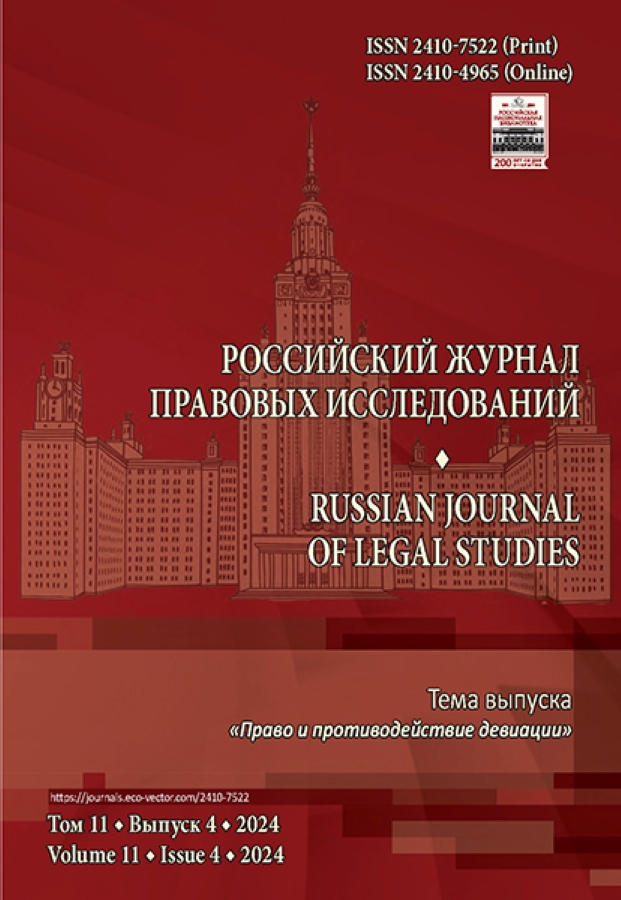Правовые проблемы исполнения налогового обязательства третьими лицами
- Авторы: Красюков А.В.1
-
Учреждения:
- Воронежский государственный университет
- Выпуск: Том 11, № 4 (2024)
- Страницы: 61-68
- Раздел: Публично-правовые (государственно-правовые) науки
- Статья получена: 01.12.2024
- Статья одобрена: 02.12.2024
- Статья опубликована: 10.12.2024
- URL: https://journals.eco-vector.com/2410-7522/article/view/642431
- DOI: https://doi.org/10.17816/RJLS642431
- ID: 642431
Цитировать
Аннотация
Статья посвящена изучению порядка исполнения налогового обязательства третьим лицом. Автором производится классификация порядка исполнения на обязательное и инициативное. В данной работе с учетом сложившейся судебной практики выделяются основания для привлечения третьих лиц к исполнению налогового обязательства в обязательном порядке, выделяется необходимый для этого юридический состав. Далее автор сосредотачивает свое внимание на проблемах инициативного исполнения налогового обязательства третьим лицом. Он выделяет различные формы злоупотребления правом при исполнении налогового обязательства третьим лицом и предлагает способы противодействия им.
Полный текст
Об авторах
Андрей Владимирович Красюков
Воронежский государственный университет
Автор, ответственный за переписку.
Email: kav@law.vsu.ru
ORCID iD: 0000-0001-9972-4380
д-р юрид. наук, профессор
Россия, ВоронежСписок литературы
- Агарков М.М. Обязательство по советскому гражданскому праву. В кн.: Избранные труды по гражданскому праву. Т. 1. Москва: ЮрИнфоР, 2002.
- Белов В.А. Солидарность обязательств (общее учение и отдельные осложняющие моменты — альтернативность, обеспечение, перемена лиц, прекращение). В кн.: Практика применения общих положений об обязательствах: сборник статей / под ред. М.А. Рожкова. Москва: Статут, 2011. С. 52–89. EDN: XXONQZ
- Шевченко Г.Н. Солидарные обязательства в российском гражданском праве // Журнал российского права. 2014. № 2(206). С. 14–20. EDN: SAWWAR doi: 10.12737/2232
- Тололаева Н.В. Тенденции российской судебной практики в контексте европейской дискуссии о «настоящих» солидарных обязательствах // Вестник гражданского права. 2016. Т. 16, № 3. С. 80–106. EDN: WHFFDR
- Копина А.А. Индивидуальность налога vs зачет средств в счет возмещения ущерба преступлением // Налоги. 2018. № 24. С. 6–14.
Дополнительные файлы








